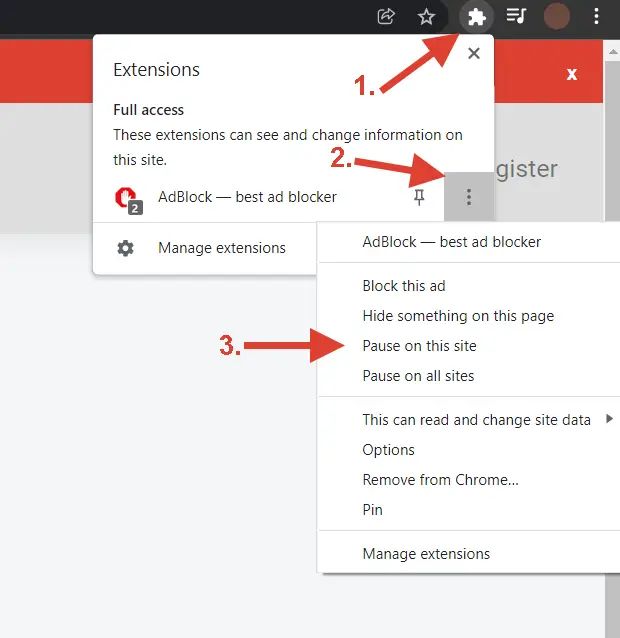Tax season can be a stressful time for any business owner, and e-commerce entrepreneurs are no exception. If you run a store on Shopify, you’ve likely wondered about your tax obligations and what documents you’ll need. One of the most common questions we see is, “does shopify send a 1099?” The answer is yes, under specific circumstances, and understanding this process is crucial for staying compliant with the IRS.
This comprehensive guide will walk you through everything you need to know about the Shopify 1099 form. We’ll demystify the requirements, explain what the form shows, and tell you exactly where to find your shopify tax documents. By the end, you’ll have a clear understanding of your responsibilities and how Shopify tax reporting works.
Table of Contents
- What is a Form 1099-K and Why Does It Matter?
- Does Shopify Issue a 1099-K? Here’s What You Need to Know
- Who Qualifies for a Shopify 1099-K? Federal and State Thresholds
- How to Get Your 1099 From Shopify: A Step-by-Step Guide
- Understanding Your Shopify 1099-K: What the Numbers Mean
- Using Your Shopify 1099-K for Tax Filing
- Frequently Asked Questions
What is a Form 1099-K and Why Does It Matter?
Before we dive into Shopify’s specifics, let’s clarify what is a 1099 k form. A Form 1099-K, “Payment Card and Third Party Network Transactions,” is an informational tax form used by the IRS. Its purpose is to report the gross amount of payments you’ve received through a payment settlement entity (PSE) within a calendar year.
In simple terms, companies that process payments for you—like Shopify Payments, PayPal, or Stripe—are required to report your total sales volume to the IRS once you reach a certain threshold. This helps ensure that individuals and businesses are accurately reporting their income. You’ll receive a copy of the form, and so will the IRS. The 1099 k form shopify provides is your official record of the gross sales processed through Shopify Payments.
Does Shopify Issue a 1099-K? Here’s What You Need to Know
So, does shopify issue 1099 forms? Yes, it does. Specifically, Shopify Payments, which is Shopify’s native payment processor, is the entity that issues a Form 1099-K to eligible merchants. If you use Shopify Payments to accept credit and debit card transactions, Shopify is required by law to file a shopify 1099-k on your behalf if you meet the federal or state reporting thresholds.
It’s important to distinguish this from other payment processors. If you also accept payments on your store through a third-party gateway like PayPal or Stripe, you may receive a separate 1099-K from them if you meet their reporting requirements. The 1099 from shopify only covers transactions processed directly through Shopify Payments. So, if you’ve been asking, “does shopify send you a 1099?”, the answer is yes, but only for the sales handled by their own payment system.
Who Qualifies for a Shopify 1099-K? Federal and State Thresholds
Whether or not you receive a 1099k shopify depends on your sales volume and the number of transactions you process. These thresholds can vary between the federal level and your specific state.
Federal IRS Threshold
For the 2024 tax year (the taxes you file in 2025), the IRS has announced a phased-in approach to a new, lower threshold. You will receive a Form 1099-K if your gross payment volume through Shopify Payments is over $5,000. This is a significant change from the previous threshold of $20,000 and 200 transactions. It is important to stay updated on these regulations as you prepare for the shopify 1099 2025 and shopify 1099k 2025 tax seasons.
State-Specific Thresholds
To complicate matters, many states have their own, lower reporting thresholds. If your business is located in one of these states, Shopify is required to issue a 1099 k shopify and report to your state tax agency even if you don’t meet the federal threshold.
Some states with lower thresholds include:
- Massachusetts: Over $600
- Vermont: Over $600
- Illinois: Over $1,000 and 4+ transactions
- Virginia: Over $600
- Maryland: Over $600
Because Shopify must comply with these local laws, you might receive a shopify 1099 k when you don’t expect one. Always check your state’s specific requirements. This is a key part of shopify irs reporting and compliance.
How to Get Your 1099 From Shopify: A Step-by-Step Guide
If you’ve met the threshold, you’re probably wondering, “how to get 1099 from shopify?” Thankfully, Shopify makes this process straightforward. Your shopify 1099 form is made available for you to download directly from your Shopify admin dashboard.
Here are the steps for your shopify 1099 download:
- Log in to your Shopify Admin account.
- From the left-hand navigation menu, click on Finances.
- In the Finances section, click on Payouts.
- On the Payouts page, look for the Documents tab or a “Tax Documents” section. Click on it.
- You will see a list of available tax forms. Locate the relevant Form 1099-K for the tax year you need.
- Click to view or download the form as a PDF.
This is where do i find my 1099 on shopify and the process for how to get 1099 k from shopify. Following these steps will give you access to the official shopify payment form you need for your records and tax filing. If you can’t find it, it likely means you didn’t meet the reporting threshold for that year. The process for how to get 1099 from shopify will be the same once the forms are issued.
Understanding Your Shopify 1099-K: What the Numbers Mean
Once you have your 1099 on shopify, you need to understand what it’s telling you. The most important number is in Box 1a: Gross amount of payment card/third-party network transactions.
This figure represents the total gross sales processed through Shopify Payments for the year. It’s crucial to understand what this includes and what it doesn’t.
- What’s INCLUDED: The gross amount includes the total of all sales, shipping fees you charged, and any sales tax you collected.
- What’s NOT INCLUDED: The gross amount does not account for refunds, returns, chargebacks, or any Shopify fees (like transaction fees or subscription costs).
This is a common point of confusion. For example, the answer to “does shopify 1099k include sales tax?” is yes. And the answer to “does shopify 1099 include fees?” is no—the amount is gross, before fees are deducted.
Furthermore, does shopify 1099 include paypal? No. The 1099 shopify sends is strictly for transactions processed by Shopify Payments. You will receive a separate 1099-K from PayPal if you meet their criteria.
Using Your Shopify 1099-K for Tax Filing
The gross amount on your shopify 1099-k form is not your taxable income. It’s your starting point. You must report this gross income on your tax return (for example, on a Schedule C if you are a sole proprietor).
From there, you deduct all your eligible business expenses to determine your net, taxable profit. This is where other shopify reports for taxes become invaluable. You’ll need to calculate and deduct expenses such as:
- Cost of Goods Sold (COGS)
- Shopify transaction fees and subscription fees
- Shipping and packaging costs
- Marketing and advertising spend
- Refunds and returns
- Home office expenses, software, and other overhead
Answering “do you have to report shopify income?” is simple: yes, you must report all business income, whether you receive a 1099-K or not. The form is simply a tool the IRS uses for verification. If you’re ever unsure, it’s always best to consult with a qualified tax professional who can provide advice tailored to your specific situation.
Frequently Asked Questions
When does Shopify send 1099 forms?
Shopify is required to provide your Form 1099-K on or before January 31st of the year following the tax year in question. So, for the 2024 tax year, you can expect it by January 31, 2025. This is also the answer to when will shopify 1099 be available 2025.
Does Shopify report sales to the IRS?
Yes, does shopify report to the irs is a common question. If you meet the federal or state threshold, Shopify is legally required to send a copy of your Form 1099-K to the IRS and/or your state tax agency.
Where is my 1099 on Shopify?
As a quick reminder of where to find 1099 on shopify, navigate to your Shopify Admin > Finances > Payouts > Documents. If a form was generated for you, it will be available for download there.
What if I use other payment gateways like PayPal or Stripe?
You will receive separate 1099-K forms from each payment settlement entity (PayPal, Stripe, etc.) where you meet the reporting threshold. Your 1099 k from shopify only reflects Shopify Payments transactions.
Does the 1099-K count as income?
No, does 1099 k count as income is a misconception. It reports your gross transaction volume. This volume is a component of your gross business income, but it is not your final taxable income. You must deduct your business expenses from this gross figure to determine your net profit.
Do I have to pay taxes on my Shopify store?
Yes, do i have to pay taxes on my shopify store is a question all sellers should know the answer to. If your store generates a net profit after all expenses are deducted, that profit is considered taxable income.
What if I didn’t receive a 1099-K from Shopify?
If you didn’t receive a 1099 k shopify form, it likely means your gross sales through Shopify Payments did not meet the federal or your state’s reporting threshold for the year. However, you are still legally required to report all income from your business on your tax return.
How do I get my 1099 from Shopify if I closed my store?
If you closed your store but are owed a shopify tax form, you should still be able to log in to access your account information. If you have trouble, you will need to contact Shopify Support directly to request your tax documents from shopify.
Does Shopify need tax info from me?
Yes, does shopify need tax info is an important question. To issue a 1099-K, Shopify must have a valid Taxpayer Identification Number (TIN) on file for you, which can be a Social Security Number (SSN) for sole proprietors or an Employer Identification Number (EIN) for businesses. If this information is missing or incorrect, your payouts may be put on hold.


